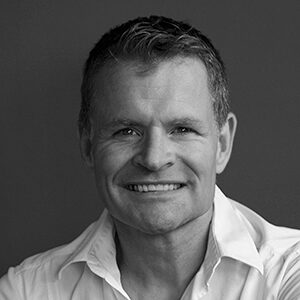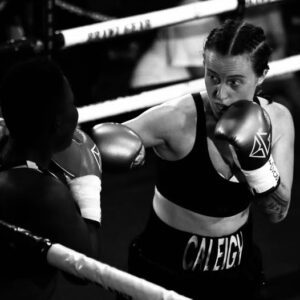
While the UFC has long teased an African debut, the Professional Fighters League (PFL) is making history this July and August, bringing two major events to South Africa. This power move, backed by significant investment and the star power of Francis Ngannou, directly challenges the established order.
The world of mixed martial arts has long been dominated by one colossal entity: the Ultimate Fighting Championship.
For years, fans across the globe, especially in Africa, have eagerly awaited a full-scale UFC event on their home soil. The promise has been whispered, alluded to, and even dangled tantalisingly by UFC boss Dana White for at least two years, particularly when African champions like Israel Adesanya, Francis Ngannou, and Dricus du Plessis held sway.
Yet that promise remains unfulfilled.
Into this void steps a bold rival in the shape of the Professional Fighters League (PFL). Far from being a mere pretender to the throne, the PFL has been quietly, yet rapidly, building its empire since its inception in 2018.
And now, they are making a historic splash, bringing not one, but two major events to South Africa this July and August, a clear statement of intent that they are here to challenge the status quo and, critically, deliver on promises where others have not.
To understand the significance of PFL’s arrival in Africa, it’s essential to grasp what makes this promotion unique.
Unlike the UFC’s traditional “superfight” model, where individual matchups are king and title shots can sometimes feel subjective, the PFL operates like a professional sports league.
Every year, 72 fighters across six weight classes enter a regular season, accumulating points for wins, with bonus points for finishes, encouraging thrilling knockouts and submissions. This “win and advance” philosophy culminates in playoffs and, ultimately, a championship bout.
The stakes? A coveted PFL title and a life-changing $1-million winner’s cheque for each divisional champion. This guaranteed chunk of change is a huge draw for fighters, offering a financial security rarely seen in the sport’s more traditional structures.
The PFL also boasts its “SmartCage” technology, embedding sensors to track real-time data and analytics, providing a deeper layer of insight for fans and broadcasters. While some might find it a little gimmicky compared to the raw nature of a traditional fight, it’s part of PFL’s commitment to innovation.
The PFL’s expansion into Africa is not just another global event; it’s a strategic and deeply symbolic move, a push fuelled by significant investment, notably a substantial backing from Saudi Arabia’s Public Investment Fund (PIF) via SURJ Sports Investment. This financial muscle has enabled the PFL to launch regional leagues like PFL Europe, PFL MENA (Middle East and North Africa), and soon, PFL Pacific (2026). But PFL Africa, launched in 2025, holds a special significance.
A huge part of this significance comes from the involvement of Francis Ngannou. The former UFC heavyweight champion famously left the UFC over contract disputes, citing a desire for more freedom and better fighter conditions. His subsequent signing with the PFL was a seismic event.

Ngannou isn’t just a fighter for the PFL Super Fights division; he’s also the chairman and a minority equity owner of PFL Africa. He’s thus not just lending his name, but actively involved in developing the next generation of African champions, shaping the league’s growth, and providing a direct pathway for African fighters to compete on a global stage without having to leave the continent.
This is a stark contrast to the UFC’s approach, which, despite having had African-born champions like Ngannou himself, Israel Adesanya, and current middleweight king Du Plessis, has yet to bring a flagship event to the continent.
The reasons cited by the UFC often revolve around logistics and financial viability, with Du Plessis himself noting concerns about ticket pricing and stadium requirements in South Africa.
Frankly, the biggest impediment is money with SA’s tired economy unable to deliver the top dollar required by the UFC.
While the UFC has spoken extensively about coming to Africa, the PFL has put its money where its mouth is, securing major broadcast deals aiming to reach 90 percent of African households. This commitment is a powerful statement.
It’s important to acknowledge that the PFL is not the very first major international MMA promotion to host an event on African soil, nor is it the first to champion African talent. That credit belongs to others who have laid significant groundwork.
One of these is the Extreme Fighting Championship (EFC) Worldwide.
Based in South Africa, EFC has been the dominant force in African MMA since its inception in 2009.
Having hosted over 120 events across South Africa, EFC has consistently provided a professional platform for African fighters. Many of the continent’s biggest stars, including Du Plessis himself, developed and even held championship belts within EFC before moving on to global promotions. EFC’s longevity and consistent delivery of high-quality events confirms the viability and passion for MMA within Africa.
A significant milestone for the broader African continent came last year when BRAVE Combat Federation (BRAVE CF) hosted BRAVE CF 82 in Mauritius, the first time a prominent international MMA promotion, outside of EFC, brought a major card to the island nation.
This event, featuring a historic bantamweight title trilogy, demonstrated that even smaller African markets could successfully host world-class MMA.
So, while the PFL’s entry is significant, it builds upon a foundation laid by home-grown powerhouses like EFC and ambitious global players like BRAVE CF.
South Africa is now set to host the first two PFL Africa events, and they promise a compelling blend of internationals and homegrown talent.

The first takes place in Cape Town on July 19 with the card split into two distinct parts, showcasing the PFL’s dual strategy: The PFL Champions Series, with the top tier talent on display, and a PFL Africa tournament featuring regional talent.
This debut show will be followed by another, on August 9, at Carnival City’s Big Top Arena, a 45-minute drive east of Joburg.
This card is designed to build on the excitement of the first, solidifying the tournament’s footprint and celebrating the diversity of African fighting talent.
The PFL’s entry into Africa is more than just another promotion hosting fights; it’s a direct challenge to the UFC’s long-standing dominance and its unfulfilled promises to the continent. While the UFC remains the undisputed leader in global MMA, the PFL is rapidly positioning itself as a legitimate rival, particularly after its monumental acquisition of Bellator MMA in 2023.
This move, which involved a complex deal using PFL stock valued at under $100-million, instantly bolstered PFL’s roster with world-class talent and expanded its reach.
However, the PFL faces its own challenges. Its season format, while innovative, can sometimes make it harder to build long-term individual rivalries. There have also been criticisms regarding fighter inactivity for those not in the immediate playoff picture, and the logistical complexities of such rapid global expansion are immense.
Yet, the PFL’s “fighter-first” approach, demonstrated through guaranteed prize money and deals like Ngannou’s that offer executive roles and external opportunities, resonates deeply with athletes.
For non-MMA experts, think of it this way: the UFC is like the long-established premier football league, with its superstar players and big-money events. The PFL is the ambitious, well-funded upstart that’s creating its own, slightly different, league structure, offering attractive incentives and, crucially for Africa, actually showing up.
The next few months in South Africa will not only witness thrilling combat sports but will also be a litmus test for PFL’s global strategy.
It’s a bold statement that the MMA landscape is evolving, and Africa is now, truly, at the heart of this exciting new chapter.
The PFL isn’t just talking about it; they’re doing it, bringing the roar of the crowd, the skill of the fighters, and the promise of a million-dollar dream directly to African shores.






